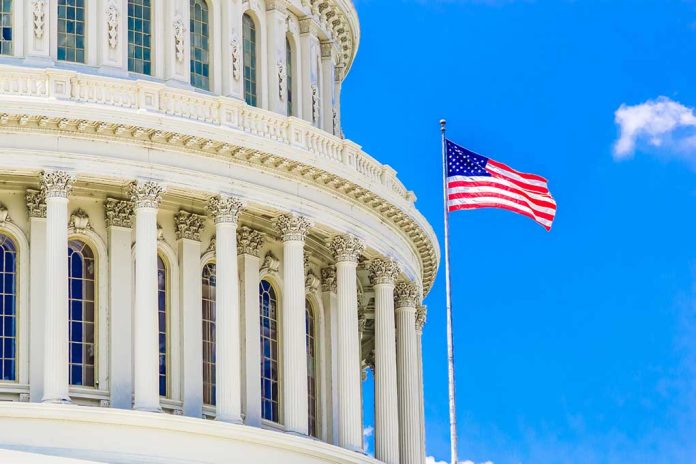
In his historic inaugural mass at St. Peter’s Square, the first American pope, Leo XIV, launched a direct assault on capitalism and war, aligning the Vatican with progressive global governance despite his role as leader of the world’s 1.3 billion Catholics.
Key Takeaways
- Pope Leo XIV used his inaugural platform to criticize “unchecked capitalism” and promote globalist unity agendas rather than focusing on traditional Catholic spiritual teachings
- High-profile political figures including US Vice President JD Vance and Ukrainian President Volodymyr Zelenskyy attended the ceremony, turning it into a political event
- The new pope specifically highlighted the Palestinian cause in Gaza while offering Vatican mediation for the Ukraine conflict
- As the first American pope, Leo XIV (formerly Cardinal Robert Francis Prevost) appears positioned to redirect Church resources toward progressive political causes
First American Pope Pushes Globalist Message
Pope Leo XIV wasted no time establishing his political priorities during Sunday’s inaugural mass at the Vatican, using his first major address to condemn capitalism and promote global governance rather than focusing on Catholic spiritual teachings. The former Chicago Cardinal Robert Francis Prevost, who became the 267th pontiff and first American pope, received his official symbols of office including the Fisherman’s Ring and pallium before a crowd of 200,000 gathered in St. Peter’s Square. World leaders and dignitaries, including US Vice President JD Vance, turned what should have been a spiritual event into what appeared more like a United Nations conference.
Rather than emphasizing traditional Catholic teachings on salvation, scripture, or evangelization, the pope used his platform to criticize economic systems that have lifted billions from poverty. “In our time, we still experience too much discord, too many wounds caused by hatred, violence, prejudice, fear of others, and an economic model that exploits the Earth’s resources and marginalizes the poorest,” said Pope Leo.
Vatican Aligns With Leftist Political Causes
The pope’s inaugural messaging signaled a shift toward progressive politics rather than spiritual leadership. During the Regina Caeli prayer, Leo XIV specifically highlighted conflicts in Gaza, Myanmar, and Ukraine, appearing to prioritize the Palestinian cause. “In Gaza, children, families and elderly people who have survived are starving. In Myanmar, new hostilities have cost innocent lives. And tormented Ukraine is eagerly awaiting negotiations on a just and lasting peace.”
“Amid the joy of faith and communion, we must not forget those brothers and sisters who are suffering from war,” stated the pope.
Following the mass, Pope Leo held a meeting with Ukrainian President Volodymyr Zelenskyy, who called the pontiff a “symbol of hope for peace.” The Vatican has offered to mediate peace talks between Ukraine and Russia, further positioning the Church as a political entity rather than a spiritual one. These actions suggest the papacy is being redirected toward progressive political causes rather than addressing the spiritual needs of Catholics worldwide.
Implications for Catholic Church Under American Leadership
As the first American to lead the Catholic Church, Pope Leo appears to be crafting a papacy focused on leftist political causes rather than addressing the growing secularism and declining church attendance plaguing Catholicism in Western nations. Vatican observers note that Leo XIV was quickly elected by the cardinal conclave, suggesting the Vatican establishment is comfortable with his progressive political alignment. This marks a significant shift from traditional papal priorities of evangelization, defending Church teaching, and promoting faith in an increasingly secular world.
“In our time, we still experience too much discord, too many wounds caused by hatred, violence, prejudice, fear of others, and an economic model that exploits the Earth’s resources and marginalizes the poorest,” said Pope Leo.
The massive crowds at St. Peter’s Square included numerous American and Peruvian flags, representing the dual citizenship of the new pope. While Catholics worldwide celebrated the historic selection of the first American pontiff, the inaugural message suggests Church resources may increasingly be directed toward promoting global governance, climate initiatives, and economic redistribution rather than spiritual renewal. For conservative Catholics, the pope’s inaugural focus on capitalism and political conflicts rather than theological matters raises questions about the Church’s future direction under American leadership.



